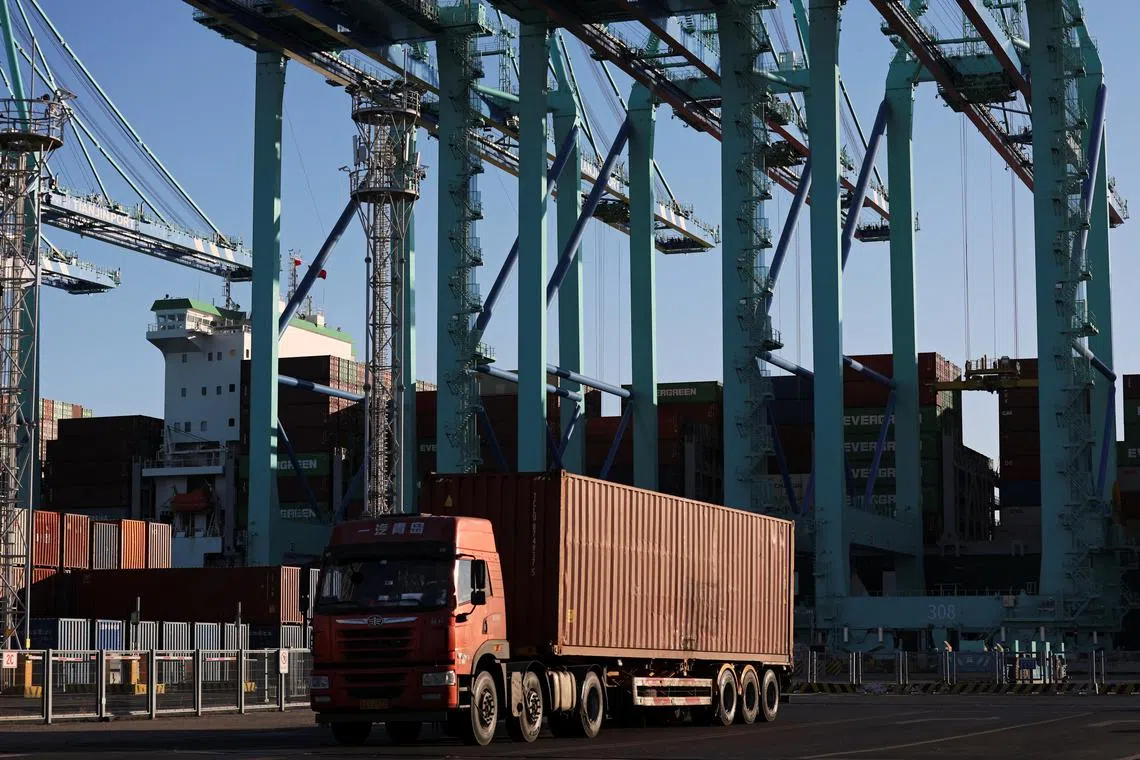China calls US trade surplus ‘inevitable’, warns it’s ready for trade war
Sign up now: Get insights on Asia's fast-moving developments

China’s trade surplus with the US widened to US$295.4 billion (S$398 billion) in 2024 from US$279.1 billion in 2023.
PHOTO: RETUERS
BEIJING - China on April 9 called its trade surplus with the United States an inevitability and warned it had the “determination and means” to continue the fight if President Donald Trump kept hitting Chinese goods with tariffs to try and bring it down.
Mr Trump delivered on his threat to impose duties totalling 104 per cent on Chinese products
He has imposed “reciprocal” tariffs on dozens of economies he accuses of “ripping off” the US by selling goods into the world’s largest consumer economy while maintaining trade barriers that inhibit US firms’ market access.
But he has singled out China for the most punishing tariffs, setting the stage for a stand-off between the world’s top two economies.
“China does not deliberately pursue a trade surplus,” said a White Paper on US-China commercial ties released shortly after the higher tariffs took effect by the State Council Information Office, which engages with media on behalf of the government.
“The trade imbalance in goods between China and the US is both an inevitable result of structural issues in the US economy and a consequence of the comparative advantages and international division of labour between the two countries,” the report added.
China’s trade surplus with the US widened to US$295.4 billion (S$398 billion) in 2024 from US$279.1 billion in 2023, according to US Census data.
The goods trade gap peaked in 2018 at US$418 billion, the same year Mr Trump, in his first term as president, imposed tariffs on Chinese outbound shipments.
“ There are no winners in a trade war
“China does not want one, but the government will never allow the legitimate rights and interests of the Chinese people to be harmed or taken away.”
“The United States is using tariffs as a tool to exert maximum pressure for selfish gains - this is classic unilateralism, protectionism and economic bullying,” the statement added. REUTERS


